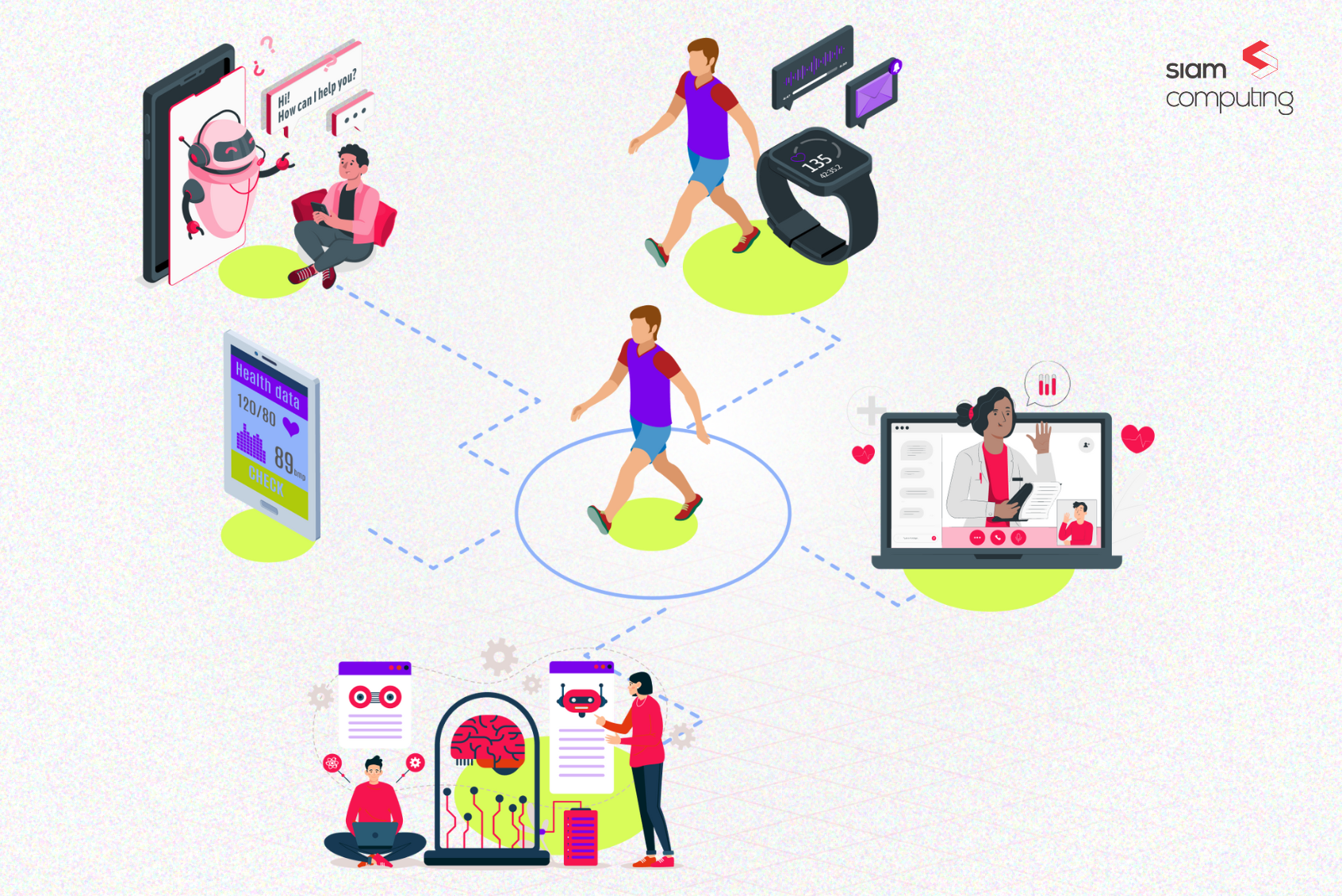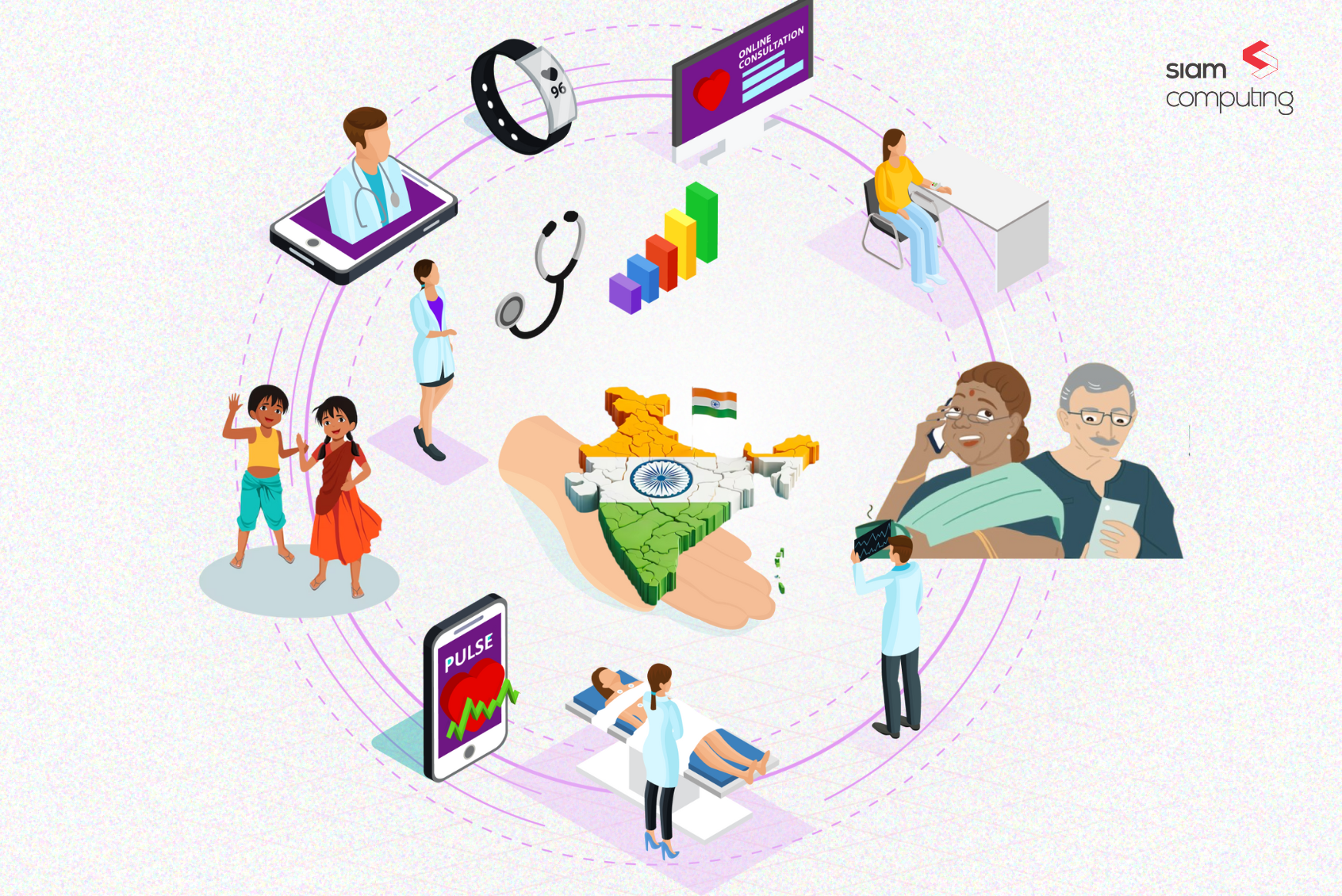We all know that there are three major app types: web-based applications, native, and hybrid mobile apps. But have you ever wondered which app type is the optimum choice for your requirement? This article is all about app types, the merits and demerits of each type, and how to choose the app type that works for you.
What are web-based apps?
Web apps are software applications that are designed to run on web servers. They are unlike usual device-specific applications that need local storage on the Operating Systems of the devices. They are unlike computer-based software applications and they are accessed by the users on the web browsers.
Web apps can be considered as the condensed form of websites with more elements and functionalities than what websites usually have. Web apps need browsers like Google Chrome, Safari, Mozilla Firefox, Internet Explorer, etc. to load and display content. They don’t have to be downloaded from the app stores like typical native apps that are developed for mobile devices. Also, they don’t consume any storage data or memory.
What are the advantages of building web-based apps?
The topmost advantages of web apps are listed below:
- Web-based apps are easy to code and maintain.
- A common code base can be used across multiple systems.
- The upfront investment cost is very less when compared to native app types.
- Web apps get updated automatically. You need not rely on the users (nor on the app stores) to update the app manually. Whenever the app is accessed on a web browser, only the latest version of the app opens.
- Web apps come with a great deal of free range of choices. Because you don’t have to adhere to the guidelines or formats of the app markets.
- Web apps can be accessed from anywhere: mobile devices, desktop devices, or browsers. All it takes is an active internet connection and nothing more than that.
What are the disadvantages of web-based apps?
Here are a few limitations of web apps:
- Since mobile devices are the most-used hardware types, web apps are not easily discoverable as they are built for browsers and not listed on app stores.
- It needs extensive marketing efforts for you to take your web apps to your target customers.
- Web apps are less-responsive and are not mobile-friendly by themselves.
- It is difficult to decipher insights from user data when it comes to web apps because different sets of users load the apps on different web browsers.
- Web apps come with a comparatively primitive user experience design because of the limitations in interactive features and intuitiveness.
When to choose web apps?
Here is when you need to choose web apps:
- When you are looking for a cost-effective solution
- When your target audiences are more likely to use web browsers than mobile devices
- When you want to develop a basic web version of the app for pitching your business idea
- When you don’t want the hassles of app stores like app releases, updates, app deployment, other terms, and conditions.
What are Native Apps?
These are the most common types of apps. These native apps are built with platform-specific languages. Java and Koltin are the common languages used to build native Android apps. Likewise, Objective C and Swift can be named as the languages commonly used to build native iOS apps. Both iOS and Google Android have got their own development tools, interface elements, and SDK in abundance that the app developers can use to build their apps in style.
IDE refers to the Integrated Development Environment. This is another method used to build native apps for specified operating systems.
What are the advantages of developing native apps?
Here is a list of benefits that native apps come with:
- Native apps come with a plethora of features that are easy for the developers to incorporate in their apps. So many businesses prefer native apps for this reason.
- When it comes to performance, native apps deliver unparalleled value and efficiency.
- Native apps let the developers enjoy the benefits and features of the operating system to the fullest.
- Native apps provide a great platform to deliver a seamless, enhanced, and the easiest user experience compared to the other two app types.
- Quality, compatibility, and security are the other salient features of native apps.
What are the disadvantages of native apps?
Here are a few shortcomings you need to be aware of if you are choosing native apps:
- Programming languages used to build native apps are difficult when compared to the other two types.
- It requires expert developers to develop native apps because of the proficient coding skills it demands.
- If you just want to build simple, basic, and primitive applications, native apps are not the ideal choices.
- Native apps are a bit expensive. It requires a huge chunk of upfront investment. This involves the cost of resources, tools, licenses, and technology.
When to choose native apps?
- When you have a flexible budget without any constraint in spending, you can go with native apps.
- When you have a solid time frame that allows a steady and step-by-step development process, a native app is the best choice. (Remember: to make the app public-ready, it might take up to 6 months or more due to strict coding and development guidelines)
- When you have enough resources and bandwidth to accommodate multiple developments across multiple platforms, you can go with native apps.
- When your project involves API provisioning, you can choose native apps.
- When you want to optimize high-resolution graphics in the user interface, native apps will work for you.
- If app performance is your topmost priority, then native apps are your ideal choices.
What are hybrid apps?
Hybrid apps are built as combined development outcomes of web-based apps and native app development. Otherwise, in general, hybrid apps are similar to native apps in behavior and run on multiple platforms.
Another way to define a hybrid app is that it can be simply considered as web apps that have got the features of native apps.
The following two parts constitute a hybrid app:
- The backend code is written in programming languages like HTML, Javascript, or CSS.
- The downloadable native shell that lets the code to be loaded using a web view.
What are the advantages of building hybrid apps?
The major highlights of hybrid apps are listed hereby:
- They don’t require a web browser to run, unlike traditional web-based apps.
- A single codebase is enough to run hybrid apps on multiple platforms, operating systems, and devices.
- Hybrid apps come with seamless access to the APIs and hardware features of the devices.
- Compared to native apps, hybrid app development is not an intricate process.
- Hybrid apps do not require great coding expertise. That lets you hire beginners with medium-level proficiency to develop your apps (unlike native apps that demand a team of expert developers).
- Hybrid apps are compatible with multiple platforms. They can also use web technologies that are cross-compatible.
- Compared to native apps, hybrid apps require less maintenance.
What are the disadvantages of hybrid apps?
Hybrid apps come with a few limitations too. Some of them are:
- Hybrid apps are relatively slow when compared to the native ones. The speed of the hybrid apps depends upon the speed of the web browser.
- Customization is costly when it comes to hybrid apps.
- You need to be dependant on a third-party wrapper for hybrid app deployment.
- There is a potential limitation when it comes to OS and hardware integration.
When to choose hybrid apps?
- When you have limited funds and budget constraints, hybrid apps come as a viable option.
- When you are looking for quicker app development, hybrid apps come as a time-friendly option.
- If you are looking for a ‘one-fits-all’ app solution to run on multiple platforms, hybrid apps work for you.
- If your app doesn’t demand numerous range of features, (as in native apps) you can go with hybrid apps.
- When you want responsive and mobile-friendly app solutions, a hybrid app is your go-to option.
- When you have limited coding resources, you can choose hybrid apps.
Regardless of the app type you choose, you must be mindful of the choices that you make. Because this decision is very influential in determining the direction of your entire business. The app type that you choose becomes a prime factor for various other parameters like cost, technology, user experience, load speed, UI design, and other features of your app. So choose your app type wisely.
Get in touch with us if you are looking for the best Web Application Development Company in Chennai. Siam Computing houses a team of mobile app development specialists, designers, engineers, business analysts, and technology enthusiasts who are experts in creating amazing mobile applications for businesses across a wide spectrum of domestic and international sectors. We make the best use of technology to develop robust mobile app solutions for your business needs. Our apps help you reach out to your customers effectively and more efficiently.
Mobile app development is not only about coding and testing. It also requires strategies and analysis. Read along this blog to learn more. Subscribe to our newsletter and stay updated.








